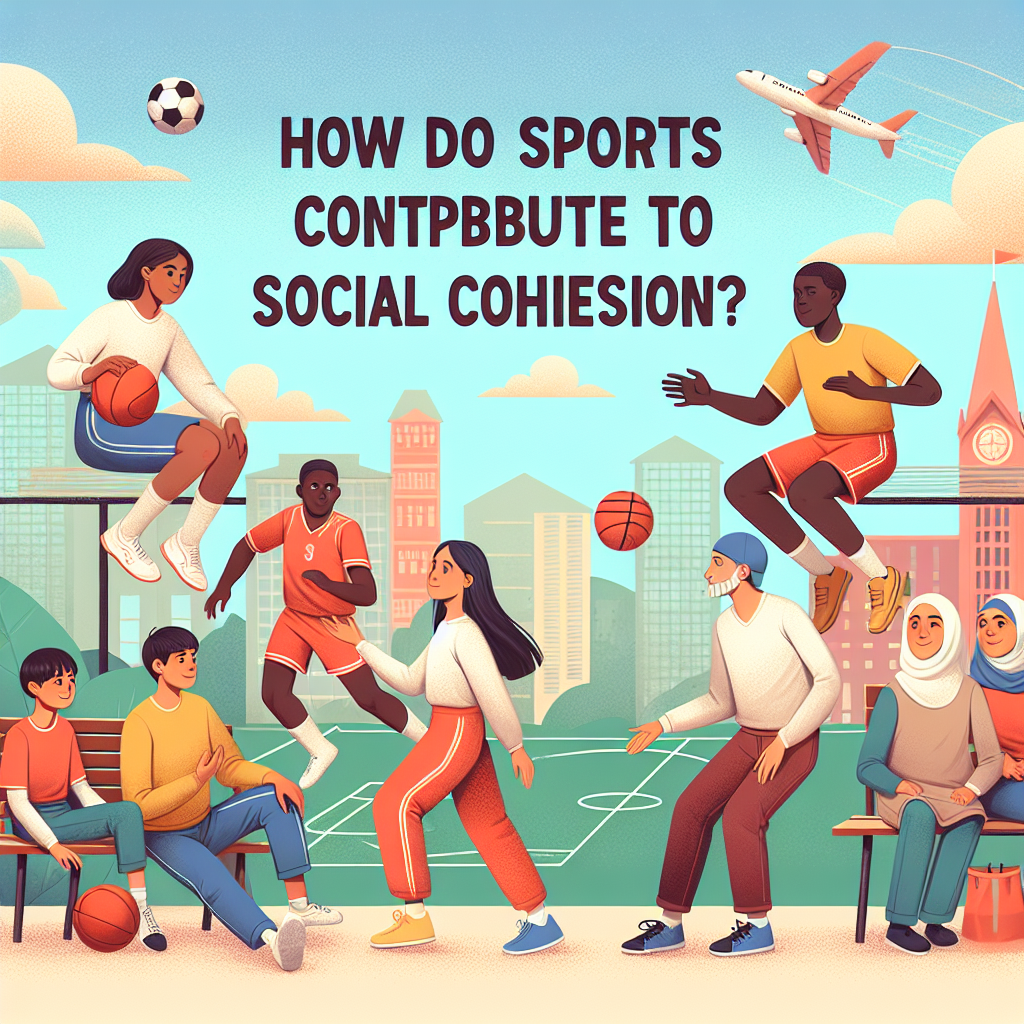Sports have always played a significant role in bringing people together and promoting social cohesion. From community sports teams to professional leagues, sports have the power to unite individuals from different backgrounds, cultures, and beliefs. This article will explore the ways in which sports contribute to social cohesion and why they are such an important tool for building stronger, more unified societies.
One of the key ways in which sports contribute to social cohesion is by providing a common ground for people to come together and interact. Whether it’s a group of friends playing a game of basketball at the local park or a stadium filled with fans cheering on their favorite team, sports have a unique ability to bring people together in a shared experience. This shared experience helps to break down barriers between individuals and create a sense of camaraderie that transcends differences in race, religion, or social status.
In addition to bringing people together, sports also teach important values such as teamwork, discipline, and respect. These values are essential for fostering a sense of community and creating a more harmonious society. Through sports, individuals learn to work together towards a common goal, overcome challenges, and celebrate achievements together. This sense of unity and shared purpose helps to build stronger social bonds and promote a more inclusive and tolerant society.
Sports also have the power to inspire and unite communities in times of crisis. Whether it’s a natural disaster, a tragic event, or a period of social unrest, sports can provide a much-needed distraction and source of hope for people facing difficult circumstances. In times of crisis, sports events can bring people together to raise awareness, raise funds, or simply provide a sense of normalcy and comfort. This sense of solidarity and support can help communities to heal and rebuild in the aftermath of a tragedy.
Furthermore, sports can be a powerful tool for promoting social inclusion and breaking down barriers to participation. By providing opportunities for individuals from all walks of life to engage in physical activity and compete in a supportive environment, sports can help to bridge divides and create a more equal and inclusive society. For marginalized groups such as women, people with disabilities, or individuals from low-income backgrounds, sports can be a means of empowerment and a pathway to greater social integration.
In conclusion, sports play a vital role in promoting social cohesion and building stronger, more inclusive communities. Through shared experiences, important values, and a sense of solidarity, sports help to bring people together and create a sense of belonging that transcends differences in race, religion, or social status. By harnessing the power of sports, we can work towards building a more unified and harmonious world for future generations.
FAQs
Q: Can sports really bring people together from different backgrounds and beliefs?
A: Yes, sports have a unique ability to unite individuals from diverse backgrounds by providing a common ground for interaction and shared experiences.
Q: How can sports promote social inclusion and break down barriers to participation?
A: Sports provide opportunities for individuals from all walks of life to engage in physical activity and compete in a supportive environment, helping to bridge divides and create a more inclusive society.
Q: What values can individuals learn through sports that contribute to social cohesion?
A: Values such as teamwork, discipline, and respect are essential for fostering a sense of community and creating stronger social bonds.
Q: How do sports inspire and unite communities in times of crisis?
A: Sports events can provide a much-needed distraction and source of hope for people facing difficult circumstances, bringing communities together to raise awareness, raise funds, or provide comfort.
